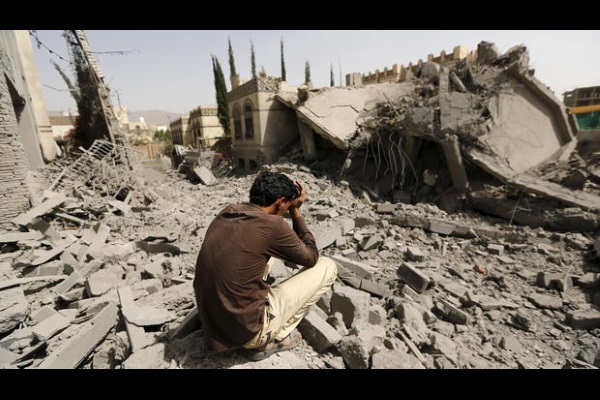The crisis in Yemen has worsened with the involvement, since 2015, of the Saudi Arabia/United Arab Emirates (UAE)-led coalition, which has conducted thousands of airstrikes against the rebel Houthi movement as well as civilian infrastructure. The coalition’s efforts are facilitated by weapons manufactured in Western countries like the United States (US), which have served to prolong the war. Due to recent concerns over the increasing number of Yemeni civilian deaths, many states have decided to end their arms deals with the coalition. The United Nations (UN) stated as of August 2018, 6,592 innocent Yemenis had died since the coalition entered the conflict in March 2015. Despite these numbers and other Western states pulling out of deals, this has not deterred countries like the US and the United Kingdom (UK), who continue to supply weapons to the coalition. This reliable supply of weapons fuels the coalition’s war effort and the aggressive Saudi-led bombing of Yemeni towns and cities. There can be no end to the war unless countries like the US and the UK stop dealing arms to Saudi Arabia and other coalition countries.
There have been in total 18,326 Saudi-led air strikes in Yemen. Al Jazeera reports one-third of those strikes have hit civilian areas. In August 2018 alone, 39 percent of the bombings destroyed non-military sites compared to 18 percent of bombings destroying military targets. Many of these bombs were found to have been manufactured in the US or UK. For example, the bomb that killed 40 children on a school bus on 9 August 2018 was made by a US company, Lockheed Martin. Another bomb dropped on a wedding in April 2018 that killed 140 people was made by Raytheon and in August 2017 a US bomb hit and destroyed a residential building in Yemen’s capital, killing 16 civilians. Amnesty International reported that a UK bomb was used in 2015 to destroy a ceramics factory in Yemen, perpetuating the trend of UK-made bombs used on Yemeni factories. Continuous criticisms of UK-made cluster bombs litter the news, yet the US and UK have refused to stop selling arms. It has taken three years of war for some countries to finally stop selling weapons to the coalition, but the US and UK still fail to acknowledge their complicity in the deaths of innocent Yemeni civilians.
In contrast to the US and UK, in January 2018, several European countries including Belgium, Norway, Germany, Finland, and the Netherlands terminated their arms deals with coalition countries after the coalition systematically failed to seriously investigate airstrikes against civilians and continued to bomb civilian areas. Saudi Arabia is one of the largest arms buyers in the world and its military is dependent on imported weapons to function. Without them, its devastating air campaign in Yemen cannot continue. Unfortunately, some countries like the US, the UK, France, and Spain continue to supply weapons to the coalition in an effort to maintain strategic alliances with states in the Gulf. The consequence is these states aid and abet the coalition’s potential war crimes.
Even after other countries ended their sales to the Saudi-led coalition and the Group of Eminent Experts published their report on human rights violations in Yemen implicating the coalition in potential war crimes, the US and UK remain the coalition’s biggest arms dealers. The US is the largest or second largest supplier to all the countries in the coalition, while the UK remains one of the main suppliers to Saudi Arabia and Egypt. There have been incessant pleas from the international community and human rights groups for countries to end all arm sales to the coalition, but these petitions have fallen on deaf ears. Spain recently said it would suspend its sale of 400 bombs to Saudi Arabia, but one week later declared it would continue with the sale. France has doubled its arm sales to the coalition in the past year, and a recent announcement from the US indicated arm sales to the Middle East will increase in 2019.
The US and the UK remain strong allies to the coalition and they remain willing to supply weapons. Samuel Perlo-Freeman from World Peace Foundation says, “One of the tragedies of the war in Yemen is that many of the states insisting there is no military solution to the conflict are themselves responsible for supplying the arms that fuel and prolong the hostilities.” By continuing to aid the coalition, the US and UK make it more difficult for the parties to reach a non-military solution for the war in Yemen. The US and the UK must end all arms sales to the coalition and the Saudi-led coalition must cease its bombing campaign in Yemen in order for the peace talks to succeed. Until then, thousands more Yemeni lives will be lost.
Caroline Hickey is an Advocacy intern at ADHRB.





